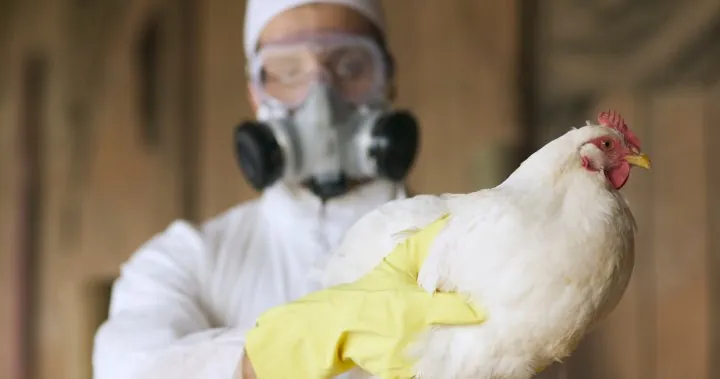
U.S. Reports First Severe Bird Flu Case as California Declares State of Emergency
2024-12-18
Author: Jacques
U.S. Reports First Severe Bird Flu Case
In a concerning development, the United States has confirmed its first severe human case of bird flu, raising alarms about the ongoing threat posed by this virus. A Louisiana resident is hospitalized in critical condition after suspected contact with an infected backyard flock, according to the U.S. Centers for Disease Control and Prevention (CDC). Notably, this case, reported on December 13, marks a significant escalation as it is the first incidence of severe illness linked to the H5N1 avian influenza in the country.
"This is the first case of H5N1 bird flu in the U.S. linked to a backyard flock," stated the CDC, emphasizing the need for vigilance in monitoring and responding to potential outbreaks.
California Declares State of Emergency
In response to this alarming situation, California Governor Gavin Newsom declared a state of emergency, utilizing it as a precautionary measure to help control the spread of the virus. Although no cases of person-to-person transmission have been reported in California, officials remain on high alert. "This proclamation is a targeted action to ensure government agencies have the resources and flexibility they need to respond quickly to this outbreak," Newsom noted. He highlighted California's extensive testing and monitoring system as crucial to protecting public health and supporting the state's agriculture industry.
Recent H5N1 Cases in the U.S.
Since April, there have been a total of 61 reported human cases of H5N1 bird flu in the United States, with the virus spreading among dairy cattle across 16 states. The strain identified in the Louisiana case belongs to the D1.1 genotype, which has been associated with recent outbreaks in both wild and domestic birds in the U.S. and human cases in regions like British Columbia.
Similar Cases in Canada
In an alarming parallel, Canada has also reported cases of bird flu, including the first domestically acquired human case confirmed in a teenager who remains in critical condition. Despite these efforts and growing concerns, public health officials maintain that the overall risk from H5N1 remains low in both the U.S. and Canada.
Vigilance Needed
Experts warn that while human-to-human transmission of H5N1 is exceedingly rare, vigilance is necessary. Most human cases have originated from direct contact with infected birds, livestock, or wildlife. In light of these developments, health authorities are urging the public to stay informed and take necessary precautions to minimize risk.
Implications for Agriculture and Wildlife Conservation
As bird flu continues to make headlines, it has drawn attention not only because of health risks but also due to its implications for the agricultural sectors and wildlife conservation efforts. With outbreaks becoming more common across North America, the situation remains fluid and warrants close monitoring to prevent further escalation. Stay tuned for updates as the story unfolds.









 Brasil (PT)
Brasil (PT)
 Canada (EN)
Canada (EN)
 Chile (ES)
Chile (ES)
 España (ES)
España (ES)
 France (FR)
France (FR)
 Hong Kong (EN)
Hong Kong (EN)
 Italia (IT)
Italia (IT)
 日本 (JA)
日本 (JA)
 Magyarország (HU)
Magyarország (HU)
 Norge (NO)
Norge (NO)
 Polska (PL)
Polska (PL)
 Schweiz (DE)
Schweiz (DE)
 Singapore (EN)
Singapore (EN)
 Sverige (SV)
Sverige (SV)
 Suomi (FI)
Suomi (FI)
 Türkiye (TR)
Türkiye (TR)